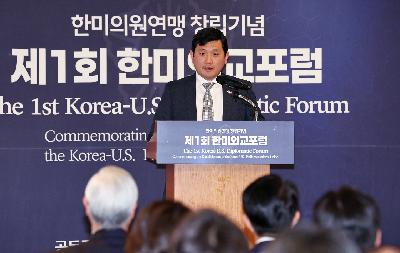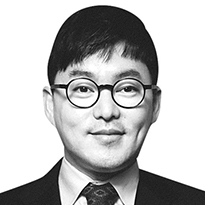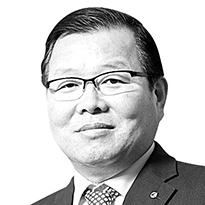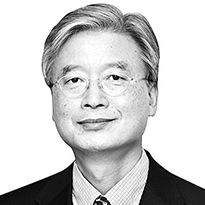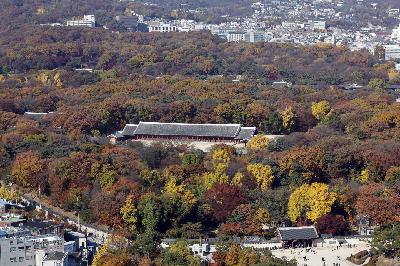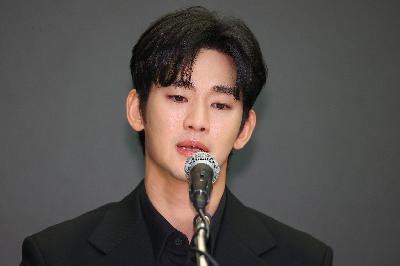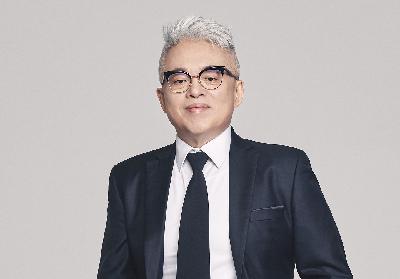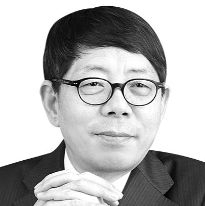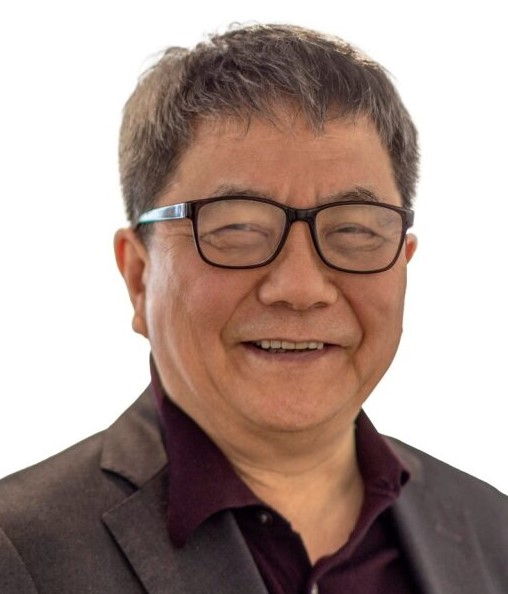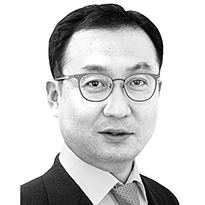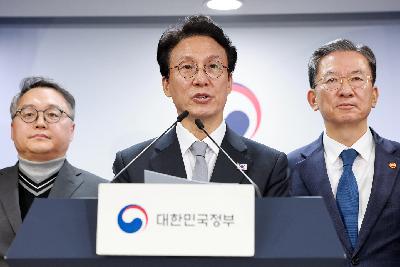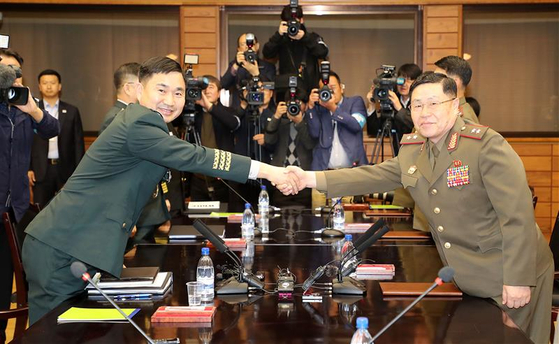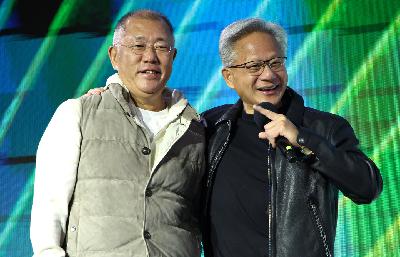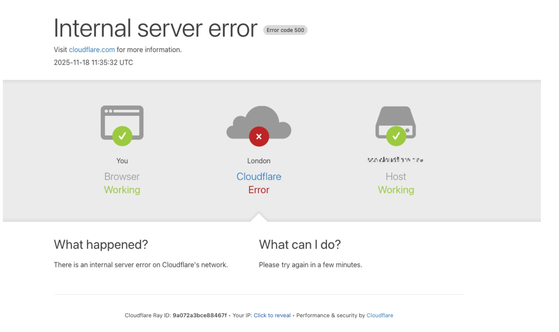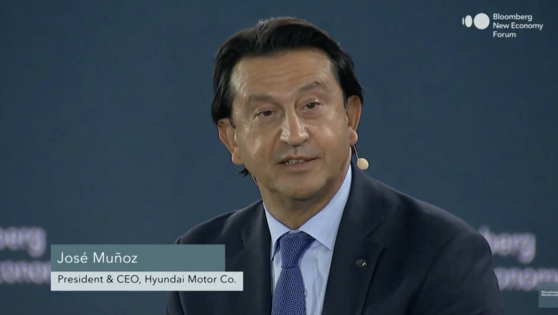Approval of nuclear subs for Korea reflects 'evolving' Yellow Sea challenges: U.S. top envoy
Update: 2025-11-20
Description
This article is by Seo Ji-eun and read by an artificial voice.
Kevin Kim, the acting U.S. ambassador to Korea, indicated that Washington's surprise approval for Seoul's push to acquire what would be its first nuclear-powered submarine reflects "evolving" security challenges in the Yellow Sea, as he addressed a bipartisan parliamentary union forum on Thursday.
"Our mutual prosperity also depends on a stable security environment," Kim said in his keynote address at the first Korea-U. S. Diplomacy Forum held at the Lotte Hotel Seoul, stressing that the two countries "must work together to address those common challenges."
What has happened in the Yellow Sea, Kim said, is why President Lee Jae Myung and U.S. President Donald Trump agreed to modernize the alliance, increase Korea's defense spending and explore new capabilities "such as nuclear-powered submarines to meet that challenge."
Kim's reference to activity in the Yellow Sea appears to allude to China's moves to install unauthorized structures in the Korea-China Provisional Measures Zone (PMZ), part of what Seoul and Washington see as Beijing's push to internalize the waterway. His remarks echo the view expressed by U.S. Chief of Naval Operations Adm. Daryl Caudle earlier this month, who said it was a "natural expectation" that nuclear-powered submarines acquired by Korea would be used to "counter" China.
He lauded the recently released joint fact sheet as a "historic document" that captures the "comprehensive nature of our relationship."
The National Assembly's Korea-U.S. Parliamentarians' Union, launched in March with 162 lawmakers - more than half of the 300-seat parliament - was established as Korea's first official legislative channel dedicated to institutionalizing exchanges with the U.S. Congress. The bipartisan body was formed at the start of U.S. President Donald Trump's second term amid growing recognition in Seoul that shifting global dynamics, from trade friction to industrial policy, require deeper parliamentary coordination with Washington.
Thursday's forum, co-hosted by the East Asia Foundation, marked the launch of the union.
Korean-American U.S. lawmakers Sen. Andrew Kim and Rep. Young Kim also delivered congratulatory messages via video at the forum.
Ruling Democratic Party (DP) Rep. Cho Jeong-sik, who co-chairs of the parliamentarians' union, urged for a swift establishment of a counterpart group in the U.S. Congress as the alliance moves to become "a higher-level future-oriented comprehensive strategic alliance" in his welcoming remarks.
He added that acting Ambassador Kim had also expressed support for deeper legislative engagement.
"The way I see it, when dealing with Korean-American members of the U.S. Congress, partisan interests seem to be at play, and Korea appears to use them temporarily for short-term gains," Kim said. "I think such a strategy can lead to a major failure."
Emphasizing that Korean-American lawmakers are ultimately American politicians, he continued, "Because they are Americans, when they work hard in the United States for America's interests [...] they can become an extremely important strategic asset for us in the long run."
He said forming an identical organization like the parliamentarians' union in the U.S. Congress would be difficult due to structural differences in the American legislative system, though creative options could be considered - for example, signing an MOU with the speaker of the U.S. House.
John Delury, senior fellow at the Asia Society, argued that the central challenge for Seoul is learning to live with a nuclear-armed North Korea while navigating the dual pressures of a U.S.-China trade war and tariff-driven economic strain under Trump's second administration.
"In an age like this of great powerful rivalry, it is for representative democratic bodies to act in solidarity around the principles and best practices of democracy itself," he said.
Delury said Korea-U.S. parliamentary exchanges "truly rise to ...
Kevin Kim, the acting U.S. ambassador to Korea, indicated that Washington's surprise approval for Seoul's push to acquire what would be its first nuclear-powered submarine reflects "evolving" security challenges in the Yellow Sea, as he addressed a bipartisan parliamentary union forum on Thursday.
"Our mutual prosperity also depends on a stable security environment," Kim said in his keynote address at the first Korea-U. S. Diplomacy Forum held at the Lotte Hotel Seoul, stressing that the two countries "must work together to address those common challenges."
What has happened in the Yellow Sea, Kim said, is why President Lee Jae Myung and U.S. President Donald Trump agreed to modernize the alliance, increase Korea's defense spending and explore new capabilities "such as nuclear-powered submarines to meet that challenge."
Kim's reference to activity in the Yellow Sea appears to allude to China's moves to install unauthorized structures in the Korea-China Provisional Measures Zone (PMZ), part of what Seoul and Washington see as Beijing's push to internalize the waterway. His remarks echo the view expressed by U.S. Chief of Naval Operations Adm. Daryl Caudle earlier this month, who said it was a "natural expectation" that nuclear-powered submarines acquired by Korea would be used to "counter" China.
He lauded the recently released joint fact sheet as a "historic document" that captures the "comprehensive nature of our relationship."
The National Assembly's Korea-U.S. Parliamentarians' Union, launched in March with 162 lawmakers - more than half of the 300-seat parliament - was established as Korea's first official legislative channel dedicated to institutionalizing exchanges with the U.S. Congress. The bipartisan body was formed at the start of U.S. President Donald Trump's second term amid growing recognition in Seoul that shifting global dynamics, from trade friction to industrial policy, require deeper parliamentary coordination with Washington.
Thursday's forum, co-hosted by the East Asia Foundation, marked the launch of the union.
Korean-American U.S. lawmakers Sen. Andrew Kim and Rep. Young Kim also delivered congratulatory messages via video at the forum.
Ruling Democratic Party (DP) Rep. Cho Jeong-sik, who co-chairs of the parliamentarians' union, urged for a swift establishment of a counterpart group in the U.S. Congress as the alliance moves to become "a higher-level future-oriented comprehensive strategic alliance" in his welcoming remarks.
He added that acting Ambassador Kim had also expressed support for deeper legislative engagement.
"The way I see it, when dealing with Korean-American members of the U.S. Congress, partisan interests seem to be at play, and Korea appears to use them temporarily for short-term gains," Kim said. "I think such a strategy can lead to a major failure."
Emphasizing that Korean-American lawmakers are ultimately American politicians, he continued, "Because they are Americans, when they work hard in the United States for America's interests [...] they can become an extremely important strategic asset for us in the long run."
He said forming an identical organization like the parliamentarians' union in the U.S. Congress would be difficult due to structural differences in the American legislative system, though creative options could be considered - for example, signing an MOU with the speaker of the U.S. House.
John Delury, senior fellow at the Asia Society, argued that the central challenge for Seoul is learning to live with a nuclear-armed North Korea while navigating the dual pressures of a U.S.-China trade war and tariff-driven economic strain under Trump's second administration.
"In an age like this of great powerful rivalry, it is for representative democratic bodies to act in solidarity around the principles and best practices of democracy itself," he said.
Delury said Korea-U.S. parliamentary exchanges "truly rise to ...
Comments
In Channel

